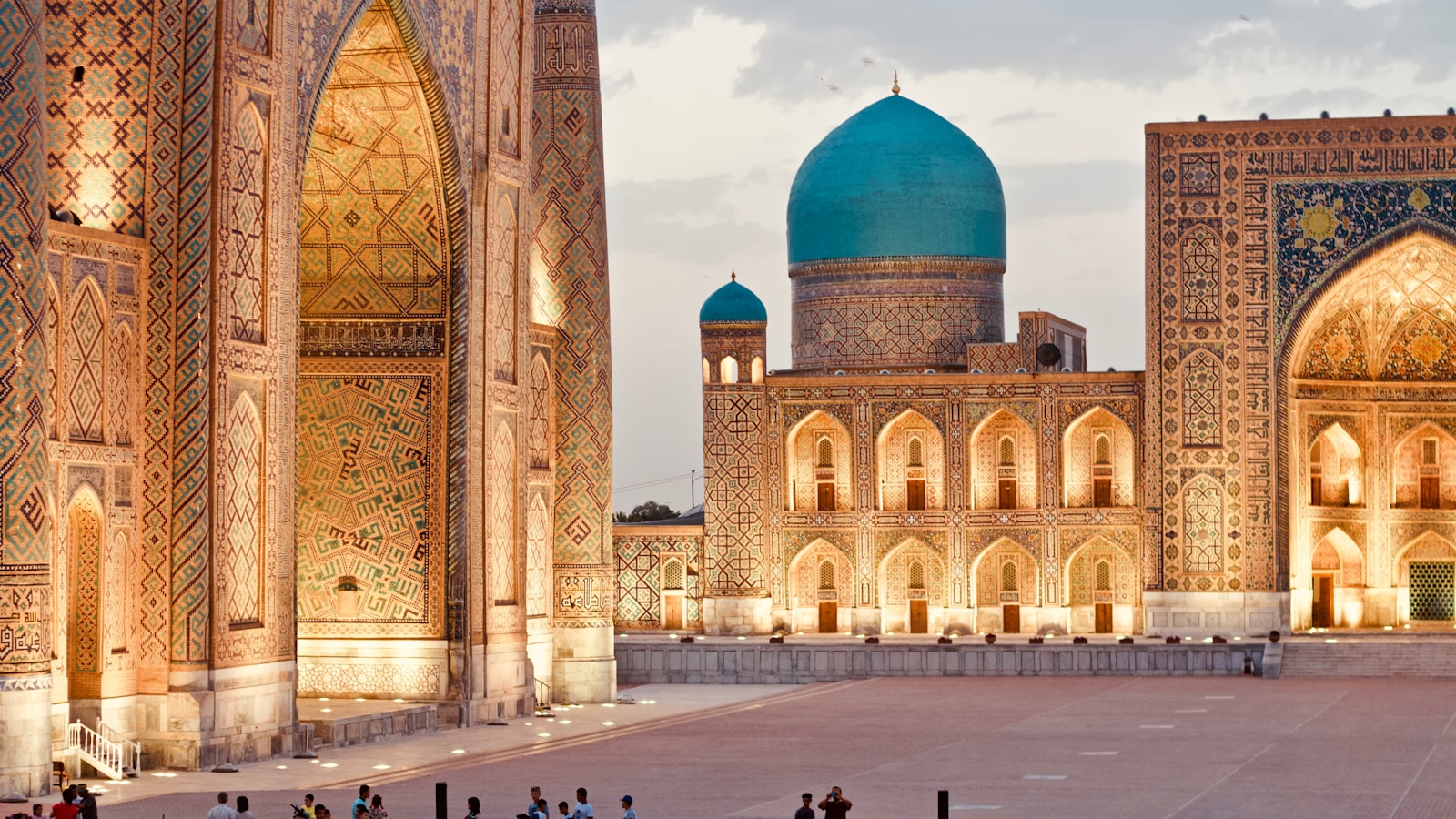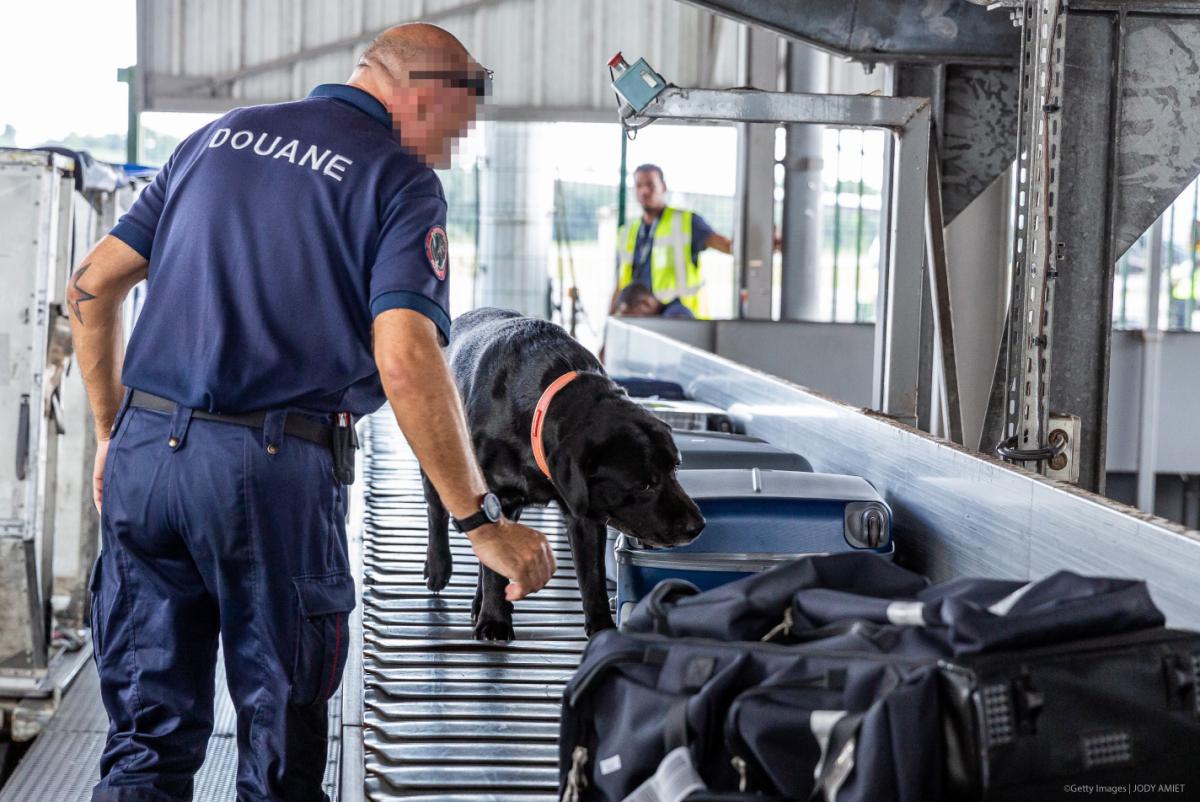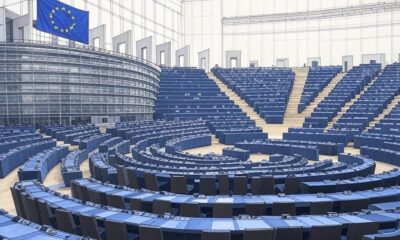Politics
One year before European elections, citizens are aware of EU impact on life
The European Parliament published today its Spring 2023 Eurobarometer study, which shows that citizens are very supportive of democracy and aware of the upcoming European Elections.
The public’s interest in the next European elections has increased measurable. A clear majority (56%) of citizens are interested in the upcoming European elections. This is 6 points higher than 2018, the year before the previous European elections.
Around two thirds (67%) of respondents say they would likely vote if European elections were held the following week. In April 2018, the EP Eurobarometer poll asked a similar question. 58% of respondents said they would vote. This indicates that citizens are more likely to vote for the 2024 European Elections than they were before the 2019 elections.
Roberta Metsola, President of the European ParliamentCommenting on the survey results, he said: “Elections are important.” Voting gives you the chance to speak out on issues that are important to you. I urge everyone, especially our young people, to vote and help shape the future. European “Union you want to live in.”
The European Parliament must defend democracy as the cornerstone of any democracy. 37% of respondents consider this to be a priority. Human rights In the EU and around the world (28%) and freedom of thought and speech (27%).
54% of respondents are satisfied by the way the democracy works in the EU. When evaluating the various elements of democracy within the EU, the citizens are most satisfied by free and fair elections (70%), freedom of speech (70%), and respect for fundamental rights (66%), but less satisfied by the fight against corruption and disinformation.
Four years into the current legislative term of the European Parliament, citizens recognize the EU’s leadership role in tackling the crises that have characterized this period. The EU has a significant impact on the daily lives of EU citizens: 71% of EU citizens agree with this statement, and close to a fifth (18%) believe that the EU’s actions have a’very’ large impact. The European Parliament’s role is also acknowledged – 62% remember hearing about it recently.
The EU’s support Ukraine The accomplishment that citizens are most satisfied with is achieving a measurable goal: 69% of them are satisfied. The Netherlands (90%), Sweden (87%) Finland (87%) Ireland (87%) and the Netherlands have the highest satisfaction rates. The lowest satisfaction rates are among respondents in Slovakia (45%), Greece (48%), and Ireland (87%). The satisfaction with EU action is relatively high also in the areas of protecting democracy rights and respecting the rule of law (64%), as well as in foreign policy (54%).
When examining the current state of the economy, it is easy to see the multiple crises that have occurred in recent years. The financial situation of citizens. Half of the respondents (50%) expect a decline in standard of living over the next 12 months. Another 29% of respondents have not yet experienced a decline in their standard of living, but expect to do so over the next 12 months. The expectation of concrete solutions is also increasing: Nearly two thirds (65%), are not satisfied by the measures taken to combat the cost-of-living crisis in their own country, and 57% with what the EU did to alleviate the problem.
Accordingly, citizens expect the European Parliament to prioritize the fight against social exclusion and poverty (38%). The priority is then followed by action against climate changes (31%), public health (33%), and support for the economy and creation of new job (31%).
You can find the full results Here is a link to the article.
Background
Kantar conducted the Spring 2023 Eurobarometer Survey for the European Parliament in all 27 EU member states between 2 and 26 of March. Face-to-face interviews were conducted in all 27 EU member states, with video interviews (CAVIs) being used in Czechia. Denmark, Finland, and Malta. Total, 26 376 interviews have been conducted. The EU results are weighted based on the population size in each country.
Source link
Politics
Elevating EU-Central Asia Relations: A New Era of Strategic Partnership

In a historic milestone for Europe-Asia relations, Antonio Costa, President of the Council of the European Union, co-chaired the first-ever EU-Central Asia Summit in Samarkand, Uzbekistan. Against the backdrop of one of Central Asia’s most storied cities, Costa delivered a visionary speech that underscored the deepening ties between the two regions and charted an ambitious roadmap for the future.
A Historic Meeting in the Heart of Central Asia
Opening his remarks, Costa expressed gratitude to Uzbek President Shavkat Mirziyoyev for hosting the summit in Samarkand, a city celebrated as a crossroads of civilizations throughout history. “Today, I am proud to be part of a new chapter in the modern history of Samarkand,” he said, emphasizing the significance of elevating EU-Central Asia relations to a “dynamic ‘strategic’ partnership.”
The summit marks three decades since diplomatic relations were established between the European Union and the five Central Asian nations—Kazakhstan, Kyrgyzstan, Tajikistan, Turkmenistan, and Uzbekistan. Reflecting on this journey, Costa noted how cultural exchanges, scientific collaboration, and trade have long connected Europe and Central Asia. His recent visits to Bukhara and Samarkand reinforced his appreciation for the region’s rich heritage and its enduring role in shaping global connectivity.
Multilateralism in an Uncertain World
In today’s volatile international landscape, Costa emphasized the critical importance of a rules-based multilateral order. “Our meeting today encourages even more EU-Central Asia cooperation in multilateral fora,” he stated, reinforcing their shared commitment to peace and prosperity. This sentiment was echoed by the announcement of the Samarkand Climate Forum , which highlights regional efforts to tackle climate change—a challenge Costa described as existential for both regions.
Climate change poses grave threats, including water scarcity, pollution, and biodiversity loss, all of which jeopardize security and economic stability. To address these issues, Costa pointed to the work of Europe’s two Climate Banks—the European Bank for Reconstruction and Development (EBRD) and the European Investment Bank (EIB) —which are already supporting climate action projects in Central Asia. He pledged to expand this cooperation significantly, signaling a forward-looking approach to sustainable development.
Strengthening Economic Ties Through Innovation
Underpinning the strategic partnership is a robust economic relationship. The EU remains one of Central Asia’s largest investors and second-largest trading partner. Building on frameworks like the 2019 EU Strategy for Central Asia , the 2023 Joint Roadmap , and the Global Gateway Initiative , Costa outlined plans to explore new areas of collaboration, including digital technologies, transport infrastructure, and raw materials.
“Our partnership is a journey, not a destination,” Costa remarked, calling on leaders to identify opportunities for deeper engagement. With initiatives like the Global Gateway aimed at fostering sustainable investments, the EU is positioning itself as a key ally in Central Asia’s development trajectory.
Addressing Shared Security Challenges
Security emerged as another cornerstone of the summit agenda. Costa commended ongoing efforts to combat transnational threats such as terrorism, drug trafficking, and violent extremism. Highlighting programs on border management and counterterrorism, he praised the EU’s longstanding support for regional stability. Notably, the newly agreed-upon dialogue on counterterrorism and violent extremism represents a significant step forward.
He also lauded the recent resolution of border disputes, specifically citing the historic agreement signed by Tajikistan and Kyrgyzstan earlier this year. “In turbulent times, we need more examples like this to solve conflicts peacefully,” Costa said, underscoring the value of diplomacy.
Turning to Afghanistan, Costa acknowledged the spillover risks posed by insecurity in the region. “Central Asia has valuable experiences and insights on how to best mitigate these risks,” he observed, advocating for joint efforts to ensure regional stability.
Standing Firm Against Russian Aggression
Perhaps the most poignant segment of Costa’s address focused on Russia’s war in Ukraine. “This war goes far beyond Ukraine and Europe,” he declared. “Russia’s aggression is an assault on the very principles of the rules-based international order.” Costa reiterated the EU’s unwavering support for a comprehensive, just, and lasting peace in Ukraine, urging Central Asia to join in defending multilateralism.
“The principles laid out in the United Nations Charter are not just words on paper—they represent the shared commitment of nations to prevent conflicts, promote peace, and safeguard the well-being of our citizens,” he stressed. In light of growing disinformation campaigns, Costa affirmed the EU’s dedication to strengthening resilience against such threats, both within its borders and among partner countries.
Investing in the Future
Concluding his remarks, Costa captured the spirit of the summit with its official motto: “Investing in the future.” He expressed optimism about the potential for EU-Central Asia cooperation to serve as a model of what can be achieved through mutual trust and ambition. “Our relations have never been stronger,” he asserted, “and now, we must move forward with ambition to write the next chapters of the strategic partnership between Central Asia and the European Union.”
As delegates left the ancient halls of Samarkand, they carried with them a renewed sense of purpose and possibility. Under Antonio Costa’s leadership, the EU has signaled its readiness to forge a transformative alliance with Central Asia—one rooted in shared values, common goals, and a commitment to building a better world.
This inaugural summit may well prove to be a turning point in Europe-Asia relations, setting the stage for a new era of collaboration and progress.
Politics
Europol’s Capture25 Photo Competition: A Lens on Law Enforcement’s Mission to ‘Make Europe Safer’

The Hague, April 4, 2025 — Europol has launched its annual photo competition, Capture25 , inviting law enforcement officers across the EU and partner countries to showcase their skills behind the lens. This year’s theme, ‘Making Europe Safer’ , calls for images that highlight the diverse efforts of officers working tirelessly to protect citizens—from combating organized crime to fostering community trust.
A Celebration of Law Enforcement’s Unsung Heroes
Europol’s competition, now in its latest edition, recognizes the critical role photography plays in documenting law enforcement’s daily realities. “Photography preserves perishable evidence,” notes a forensic photography expert, emphasizing how images capture everything from crime scenes to victim injuries, aiding investigations and legal proceedings 357. Beyond forensics, the contest also celebrates the human side of policing, such as officers on patrol, training exercises, and community engagement initiatives.
Capturing Cooperation and Creativity
As Europol’s work often hinges on international collaboration, submissions showcasing cross-border operations are particularly encouraged. “Police have long applied photography as an evidentiary and surveillance technology,” historians observe, underscoring its role in maintaining social order 4. This year, creative interpretations of the theme are also welcome, including abstract compositions or innovative techniques that challenge conventional perspectives—provided they avoid AI-generated or enhanced content. “Traditional photography methods should remain at the core,” Europol insists, aligning with debates over authenticity in law enforcement imagery 68.
How to Participate
Eligible photographers—law enforcement personnel from EU Member States or countries with Europol agreements—can submit up to five entries by August 8, 2025. Winners will receive a trip for two to Europol’s headquarters in The Hague, with their work featured in calendars, social media, and other publications.
A Tribute to a Vital Profession
“Whether professional or amateur, Europol is excited to see their skills in action,” the agency states, urging participants to “capture the best moments of law enforcement.” As the competition underscores, these images not only serve as historical records but also remind the public of the dedication behind the badge 19.
Politics
Commission presents a European internal security strategy



DISCLAIMER: Information and opinions reproduced in the articles are the ones of those stating them and it is their own responsibility. Publication in The European Times does not automatically means endorsement of the view, but the right to express it.
DISCLAIMER TRANSLATIONS: All articles in this site are published in English. The translated versions are done through an automated process known as neural translations. If in doubt, always refer to the original article. Thank you for understanding.

– Advertisement –
– Advertisement –
The Commission has presented ProtectEU, a new European internal security strategy to support EU countries in guaranteeing security for its citizens. It sets out a workplan with a stronger legal framework, better information sharing and closer cooperation.
To address increasing security and hybrid threats like terrorism, organised crime, cybercrime, and attacks on critical infrastructure, Europe needs to review its approach to internal security. The strategy aims to adopt a whole-of-society approach that includes citizens, businesses, researchers, and civil society who can contribute to better safety for all.
Key objectives and actions:
- a new European internal security governance
- anticipating security threats through new ways of sharing intelligence
- more effective tools for law enforcement and stronger justice and home affairs agencies
- building resilience against hybrid threats
- fighting serious and organised crime
- combatting terrorism and violent extremism
- the EU as a strong global player on security
The actions are backed by evidence from the EU Serious and Organised Crime Threat Assessment (EU-SOCTA). The strategy complements the preparedness union strategy and the European defence white paper. Together with the forthcoming European Democracy Shield, they form a comprehensive framework for a safe, secure, and resilient EU.
For more information
Press release
Factsheet
Questions and answers
Security and defence
The European internal security strategy
Internal Security
Source link
More from the author
– EXCLUSIVE CONTENT –
-

 Health & Society5 days ago
Health & Society5 days agoThe Art of Earthing – Grounding Yourself for Better Physical Health
-

 Health & Society6 days ago
Health & Society6 days agoNatural Sleep Solutions – Creating a Restorative Nighttime Routine
-

 Health & Society7 days ago
Health & Society7 days agoCold Showers and Beyond – Embracing Temperature Therapy for Vitality
-

 Sports6 days ago
Sports6 days agoInter: Acerbi’s renewal is already there and the clause is no longer a concern
-

 Politics3 days ago
Politics3 days agoEU Parliament Tackles Steel Industry, Fundamental Rights, and Budget Priorities in Plenary Session
-

 EU & the World5 days ago
EU & the World5 days agoYoung Scooter’s Kids: About the Late Rapper’s Daughter & Sons
-

 Health & Society4 days ago
Health & Society4 days agoSpice Up Your Life – The Health Benefits of Turmeric, Ginger, and More
-

 Sports3 days ago
Sports3 days agoNBA, Steph Curry and Nikola Jokic show: Memphis knockout, Minnesota no








